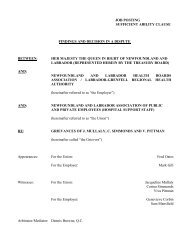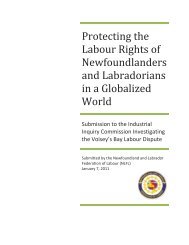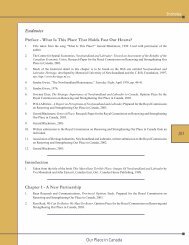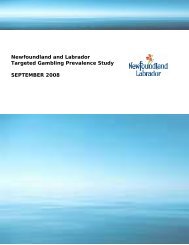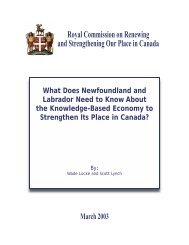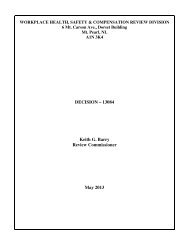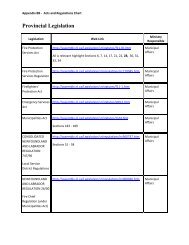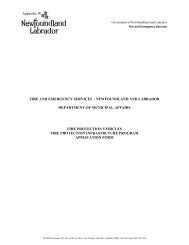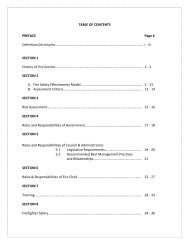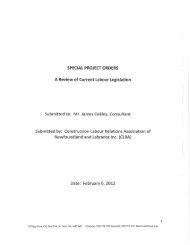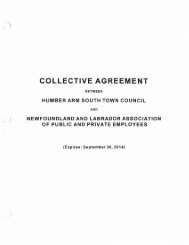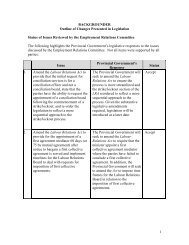Energy Plan - Government of Newfoundland and Labrador
Energy Plan - Government of Newfoundland and Labrador
Energy Plan - Government of Newfoundland and Labrador
You also want an ePaper? Increase the reach of your titles
YUMPU automatically turns print PDFs into web optimized ePapers that Google loves.
Figure 4.6<br />
Potential Export Routes<br />
POLICY<br />
ACTIONS<br />
Transmission for Export<br />
The <strong>Government</strong> <strong>of</strong><br />
<strong>Newfoundl<strong>and</strong></strong> <strong>and</strong> <strong>Labrador</strong> will:<br />
• Work to establish appropriate<br />
transmission access to<br />
Canadian <strong>and</strong> U.S. national<br />
electricity grids.<br />
• Work with other governments<br />
<strong>and</strong> industry to establish an<br />
effective national electricity<br />
transmission system.<br />
Canadian OATTs were mostly implemented in response to the United States<br />
Federal <strong>Energy</strong> Regulatory Commission (FERC) requirement that electricity<br />
companies making use <strong>of</strong> open access provisions in the United States, such as<br />
Hydro-Quebec, must provide reciprocal access on their own systems <strong>and</strong> those<br />
<strong>of</strong> all affiliates. Within Canada, there is no national regulatory agency that can<br />
require or enforce inter-provincial transmission access. The National <strong>Energy</strong><br />
Board could do this, as it does with oil <strong>and</strong> gas pipelines, but only if specifically<br />
allowed by the Federal <strong>Government</strong>. To date, this has not occurred.<br />
The United States has made great strides towards creating a national grid system,<br />
which allows the sharing <strong>of</strong> power supplies among all areas. The continued<br />
absence <strong>of</strong> an effective inter-provincial electricity transmission system in Canada,<br />
45



